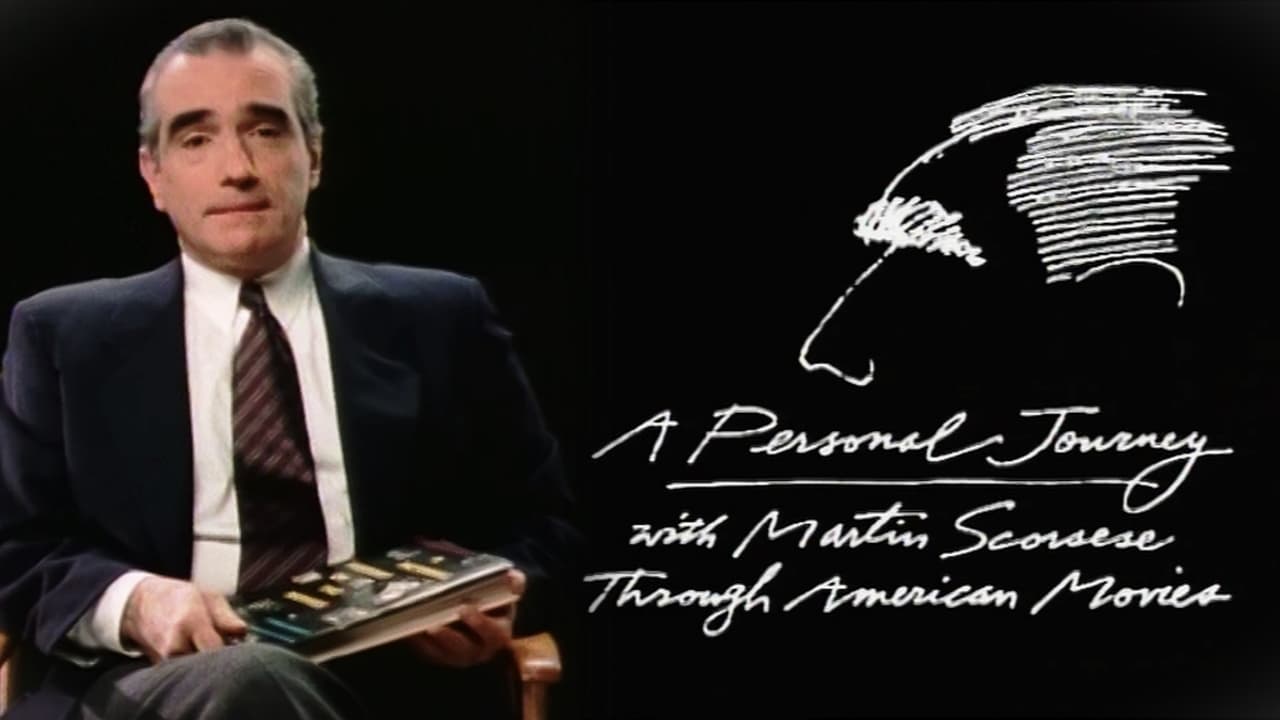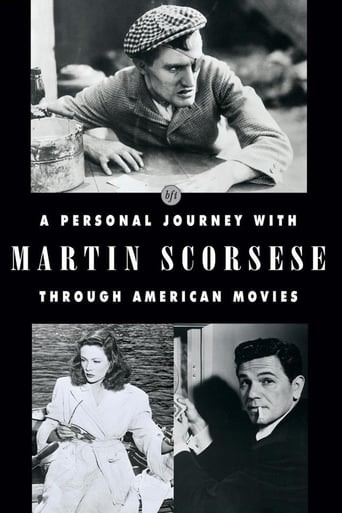

When the British Film Institute asked Martin Scorcese to create the American part of its Century of the Cinema series, he grabbed the opportunity with both hands. A Personal Journey through American Movies is a fascinating, wide-ranging and, as the title says, a highly personal look at Hollywood cinema.Scorcese's story is primarily about Hollywood's directors actors, producers, screenwriters and other collaborators barely get a mention. He states right from the beginning that for him the primary conflict within the film industry is that between the director's vision and the distributor's profit motive, between art and commercial viability. He even opens with a clip from Vincente Minnelli's The Bad and the Beautiful, one of the earliest films to openly explore this contradiction. This dictates the structure for the documentary. Scorcese looks at how genres have darkened and clichés have become challenged, how mavericks have challenged the production code, and how certain filmmakers fell from grace when they dared to be different. However, Scorcese never falls into the auteurist trap of dismissing directors who consistently pleased the studio bosses (he lavishes praise on Cecil B. De Mille), or those who had less of a recognisable style but were master craftsmen of the cinema nonetheless.Scorcese doesn't necessarily focus on his absolute favourite directors either (Orson Welles and Alfred Hitchcock, two of Scorcese's biggest influences, are only mentioned in passing). Instead, he looks at the individuals and the films that serve to tell his story. For example, he shows us a succession of John Ford films to show how the western evolved. He looks at the work of Vincente Minnelli (probably the most often referenced director of the documentary) to show how a supposedly wholesome genre like the musical could also have darker undercurrents. I can imagine that, had this assignment not been limited to America, Scorcese would have also loved to talk about, for example his Italian influences or his British hero Michael Powell. As it is, he stretches the definition of American movies to include both the Hollywood films of immigrant directors such as FW Murnau, Billy Wilder and Douglas Sirk, as well as the work of US-born filmmakers that was produced elsewhere such as that of Stanley Kubrick.Rather than simply tell the story of Hollywood chronologically, Scorcese compares films from various eras in order to tackle various subjects. In his section on the language and tools of cinema, he begins with DW Griffith, looks at the coming of sound, colour and widescreen and inevitably ends up going over computer generated effects which, although Scorcese is not keen on them, he is even-handed enough to include clips of George Lucas and Francis Ford Coppola defending them. However, he doesn't simply finish the chapter here as if this is the end of it. Instead, he then rewinds back to the 1940s, to show how a low-budget horror like The Cat People can achieve effective results from the simplest and cheapest of elements.A Personal Journey through American Movies has to be one of the best film documentaries made. There were a number of outstanding directors and pictures which I would never have discovered without, and even the most seasoned of film buffs would be likely to find something new in its broad scope. Scorcese has also restored the balance to forgotten or undervalued pictures. I was pleased to see that, when he talks about Kubrick in his "Iconoclasts" chapter, he looks at Lolita and Barry Lindon, for me his two most underrated films. Scorcese's respect for the medium is on display in the way he allows clips to play out fully, rather than just giving us tiny bits, and he interrupts them with talking heads (a combination of archive and new interviews) only when necessary. There is a bit of bias towards the 40s and 50s, but that is hardly surprising since it is the era in which Scorcese grew up and discovered cinema. And after all, I don't think this documentary could have been achieved had it not been a personal journey.One word of warning though, in its in depth look at certain pictures, this documentary does contain a fair few spoilers.
... View MoreI would never have thought I would almost cry viewing one minute excerpted from a 1920 black and white movie without sound. Thanks to Martin Scorsese I did (the movie was from F. Borzage). You will start to understand (if it's not already the case), what makes a good movie.
... View MoreThere's a mystical air you get when Martin Scorsese's talking about movies, his passion, especially if it's a shared passion with the viewer. The second his mouth opens you start to slowly realize, he knows what he's talking about. What a tremendous opportunity to listen to such a brilliant director discuss his inspirations. It was especially magical to watch over and over this three part documentary set for that reason. It's a wonderful gift to be able to find out what your inspiration is inspired by. I especially enjoyed listening to Scorsese directly credit films that effected the way he made some of his films. HIGHLY recommended to any movie buff with the balls to learn something new from a fantastic teacher.
... View MoreThank the Lord for Martin Scorsese, and his love of the movies.This is the perfect introduction into the mind of the most talented American artist working in cinema today, and I couldn't recommend it more. I was enthralled through the whole thing and you will be too. Just relax and let him take you on a ride through his world, you'll love it.
... View More